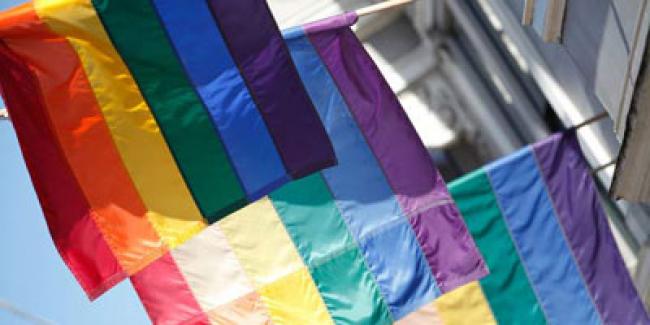27 Nov 2014, 08:13 am Print

The draft law, which passed its first reading in the Parliament this past month, must be voted on twice more before going to the President for signature, the experts noted in a press release issued by the UN Office of the High Commissioner for Human Rights (OHCHR).
“Instead of adopting legislation which de facto condemns lesbian, gay, bisexual and transgender (LGBT) communities to silence, the authorities should be fighting against all forms of violence and discrimination in Kyrgyzstan,” the experts said.
“The UN has already documented violence and discrimination against LGBT people in Kyrgyzstan and shown how similar laws in other countries have led to targeted abuse and violence against LGBT persons,” they added.
The experts include the Special Rapporteur on the promotion and protection of the right to freedom or opinion and expression, David Kaye; the Special Rapporteur on the rights to freedom of peaceful assembly and of association, Maina Kiai; the Special Rapporteur on the situation of human rights defenders, Michel Forst; and the Special Rapporteur on the right of everyone to the enjoyment of the highest attainable standard of physical and mental health, Dainius Puras.
The explanatory note accompanying the bill defines non-traditional sexual relations as “sodomy, lesbianism, and other forms of non-traditional sexual behaviour.” It bans the dissemination of information in the media and on the Internet, as well as the organization and participation in peaceful assemblies on these issues.
Punishment includes fines up to between 3,000 and 6,000 Som (between $36 and $91) and between six months to one year of imprisonment. The average worker’s salary in Kyrgyzstan is about $140 per month, the experts noted.
“Limiting freedom of expression is only acceptable in very exceptional circumstances and based on objective criteria – this is clearly not the case here,” Kaye stressed. “Imposing limits to the dissemination of information on ‘non-traditional sexual relations’ simply means silencing those who identify as LGBT and, indeed, any discussion of the situation of the LGBT community in the country,” he added.
Along those lines, Kiai emphasized that the freedom of assembly protects demonstrations promoting ideas that may be seen as “annoying or offensive by others.” “Rejecting one’s right to organize a public assembly on the basis of its content is one of the most serious interferences with the freedom of peaceful assembly,” Kiai declared.
For his part, Forst warned that “the draft law not only discriminates against a specific subset of the population, but would also chill the legitimate work of human rights defenders advocating for the human rights of the LGBT community.”
In the view of Puras, the bill would infringe on the overall enjoyment of the right to health in Kyrgyzstan, in addition to targeting the LGBT community.
“The full enjoyment of the right to health is impossible without access to information and open discussion on sexual and reproductive rights,” Puras said, adding that the bill as it stands would inhibit such access, as well as the possibility of open discussion on sexual and reproductive health and rights.
The group of independent experts recalled two recent Human Rights Council resolutions condemning acts of violence and discrimination, in all regions of the world, committed against individuals because of their sexual orientation and gender identity. As such, adopting new laws banning any expression on LGBT issues “is certainly not the response needed to ensure better support and protection for the human rights of this group, which is often stigmatized and at risk,” according to the experts.
Photo: UNAIDS
- India's blue city Jodhpur turns a rainbow leaf with Rajasthan's first LGBTQ-run cafe
- LGBTQIA: Greek parliament votes to legalises same-sex marriage
- Russia: UN rights chief denounces outlawing of ‘the international LGBT movement’
- Canada alerts LGBTQ citizens of the risks of travelling to US
- Survey says about 9 percent of adults in 30 countries identify themselves as LGBTQ





-1763561110.jpg)
